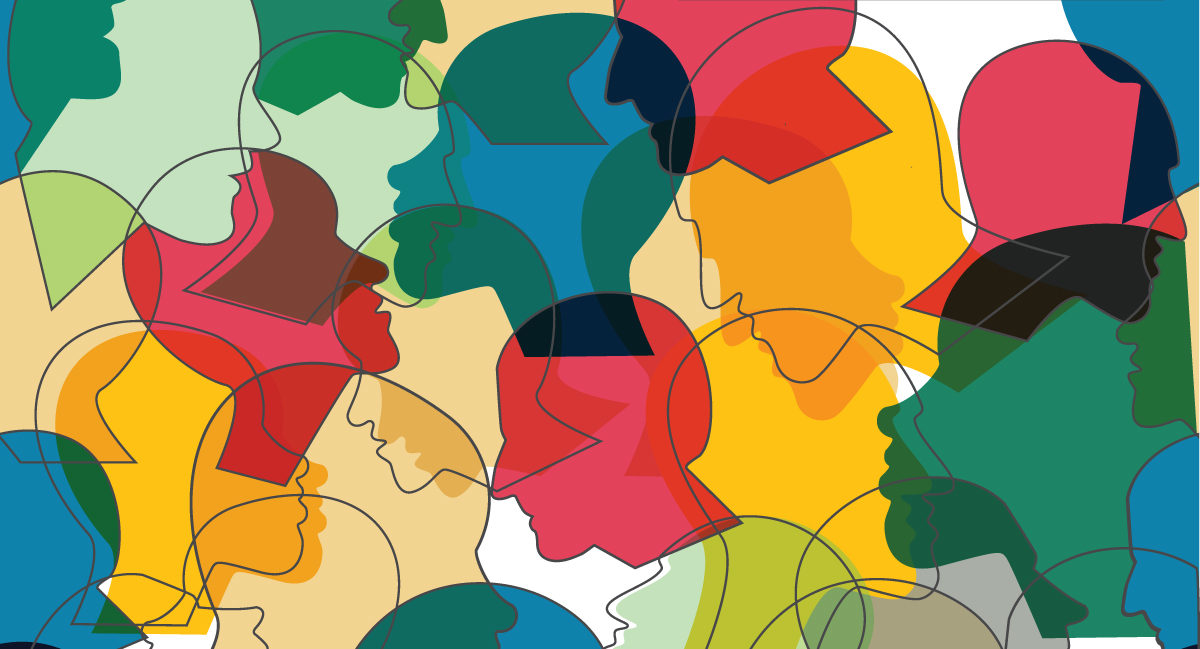
Why Might People Not Seek Help for Mental Illness? Allegheny College Research Team Looks for Answers
Mental health problems are on the rise in the United States, but due to a variety of reasons, many people aren’t getting or seeking the help they need, says Allegheny Psychology Professor Monali Chowdhury.
Recognizing a lack of research on the subject, Chowdhury tasked students in her research group to study this phenomenon in the spring of 2019. Using a sample of 60 Allegheny students, they explored whether seeking help for mental-health issues among college students was related to their extent of knowledge about mental health — otherwise known as mental health literacy. In the fall of 2019, Chowdhury and her students are taking the research nationwide by conducting a voluntary online survey on a community sample to determine why people aren’t seeking help for their mental health challenges, such as severe depression and anxiety.

“It’s a growing problem,” says Chowdhury. “Not everybody is getting the treatment they need and that’s for a variety of reasons, from not having insurance to the stigma of reporting mental health problems to a lack of resources. There is roughly one psychiatrist for every 500 people nationwide, statistics indicate.”
More than 43.8 million adults experience mental illness in a given year; that’s one in five adults in this country, according to statistics published by the National Alliance on Mental Illness in 2019. These issues include schizophrenia, bipolar disorder, major depression and anxiety disorders, among others. Yet, 60 percent of those people did not seek counseling or any other professional help for their issues due to low mental health literacy, which is a person’s ability to recognize, manage and cope with these disorders and other mental-health issues.
“As a society, we have to work through this taboo of reporting mental illness. You wouldn’t think twice about getting treatment for a sprained ankle, but many are reluctant to seek help for their depression or anxiety,” says Chowdhury. “There’s still a lot of misinformation and stigma out there about mental health issues.”
Chowdhury and her students decided to look at the issue of mental health literacy on the Allegheny campus last spring. Students collaborating on this project were Jade Allen ’21, Riley Sawyer ’22 and Alexis Jarvie ’22. “We found that there is definitely a correlation between mental health literacy and the willingness to seek help,” says Chowdhury.

In addition, male students in this study had significantly lower scores on a questionnaire assessing attitudes toward seeking help, says student researcher Josephine Hughes ’22, who collaborated with Chowdhury on a continuation of this project during the summer. “Research indicates that men often don’t want to appear weak or unmasculine by seeking help for mental health problems,” Hughes says.
“Also,” Hughes continues, “research of literature on the subject shows that age, ethnicity, income and level of education might be factors influencing a person’s decision to seek assistance for mental health problems.”
Chowdhury and her students will be exploring these issues in a nationwide community sample as the project continues into the fall of 2019. They will seek to recruit participants across the nation through Amazon Mechanical Turk (MTurk), which is a crowdsourcing website used to post surveys and obtain data. Some sample questions could be: “To what extent do you agree that a mental illness is a sign of personal weakness?” and whether people agree with statements like, “If I believed I was having a mental breakdown, my first inclination would be to get professional help.”
The research team will use the data to explore the relationship between different demographic variables and mental health literacy and how they impact the willingness to seek help for mental-health issues. A key question for these researchers is: What factors affect mental health literacy?
“Current knowledge doesn’t give us good answers. That’s why it requires more research,” says Hughes.
Adds Chowdhury: “I think the ultimate goal is to make mental health discussions more normative, to be able to identify segments of the population who are particularly stigmatized by mental illness and take strategic initiatives to improve mental health literacy.”